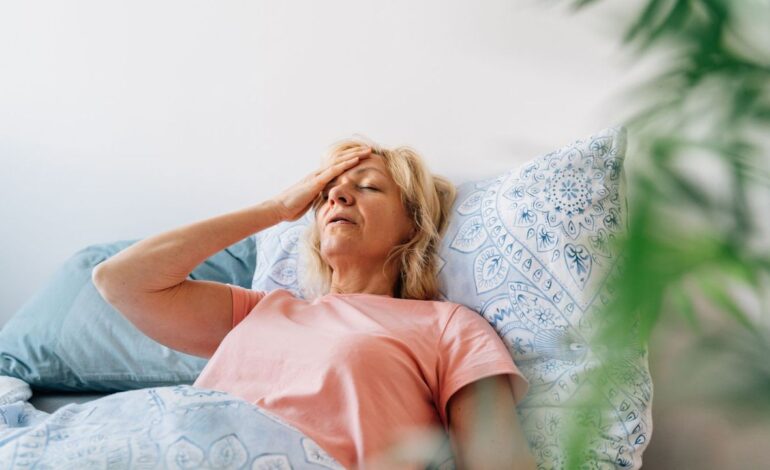Understand Night Sweats: Causes and Solutions Revealed

Night sweats are a common issue affecting up to 41 percent of primary care patients, as highlighted by sleep medicine expert Dr. Andrea Matsumura. These episodes of excessive sweating during sleep can disrupt rest and may signify underlying health conditions. By understanding the causes of night sweats, individuals can take steps to manage this uncomfortable condition effectively.
What Are Night Sweats?
Night sweats refer to recurrent episodes of excessive sweating that occur while a person is asleep. Unlike occasional overheating, which can result from environmental factors like room temperature or heavy bedding, true night sweats are often linked to medical issues. Dr. Matsumura emphasizes certain distinguishing traits:
– **Frequency and Severity:** If individuals wake up drenched in sweat multiple times a week and need to change clothes or bedding, this signals a potential health concern.
– **Accompanying Symptoms:** Night sweats occurring alongside symptoms such as weight loss, fever, menstrual irregularities, or chronic fatigue may indicate a more serious health issue.
Common Causes of Night Sweats
Understanding the various causes of night sweats is essential for determining appropriate management.
**Hormonal Changes:** Fluctuations in hormone levels are among the most prevalent causes, particularly in women. According to a 2023 review published in the Journal of the American Medical Association (JAMA), approximately 50 to 75 percent of women experience night sweats or hot flashes during menopause. Hormonal shifts can also occur during pregnancy and even throughout the menstrual cycle.
**Medications:** Certain medications, including antidepressants, pain relievers, and steroids, can interfere with the body’s temperature regulation system. Dr. Matsumura advises patients to consult their doctors if they notice an increase in night sweats following a medication change.
**Sleep Disorders:** Conditions like sleep apnea can also contribute to night sweats. A study from Iceland found that over 30 percent of males and 33 percent of females with obstructive sleep apnea reported nocturnal sweating at least three times a week. This occurs as the body struggles to obtain adequate oxygen during sleep.
**Underlying Health Conditions:** Night sweats can be symptomatic of various health issues, including hyperthyroidism, gastroesophageal reflux disease (GERD), diabetes, infections, and certain cancers. Dr. Matsumura notes that these conditions may trigger metabolic and immune responses, leading to excessive sweating.
**Mental Health Factors:** Anxiety, stress, and depression can activate the body’s sympathetic nervous system, mimicking the fight-or-flight response and resulting in sweating. Nightmares and night terrors, often tied to mental health struggles, can also induce night sweats.
Managing Night Sweats
For those experiencing night sweats, seeking medical advice is crucial. A healthcare provider can help identify the cause and develop a tailored treatment plan. Dr. Matsumura advises against ignoring persistent night sweats, as they can significantly impact sleep quality and overall health.
In addition to professional guidance, several lifestyle modifications may help manage night sweats:
**Dietary Changes:** Reducing the intake of alcohol, caffeine, and spicy foods, particularly before bedtime, can be beneficial. Dr. Matsumura suggests establishing a calming nighttime routine, such as guided relaxation or journaling, to promote better sleep.
**Room Temperature Regulation:** Creating a cool sleeping environment is vital. The ideal room temperature for sleep ranges from 18 to 21 degrees Celsius (65 to 70 degrees Fahrenheit). Utilizing blackout shades, running a fan, and opting for breathable sheets can enhance comfort during sleep.
**Regular Exercise:** Engaging in regular physical activity can help regulate hormones and improve sleep quality. However, it is advisable to avoid intense workouts within two to three hours of bedtime, opting instead for gentler activities like walking or yoga in the evening.
**Medical Treatments:** If night sweats are linked to an underlying health condition, tailored treatments may be necessary. For instance, if hormonal changes due to menopause are the cause, options such as hormone therapy or non-hormonal medications may be considered. It is essential to consult with a healthcare provider before starting any new treatments.
By understanding the causes of night sweats and implementing effective management strategies, individuals can improve their sleep quality and overall well-being.






